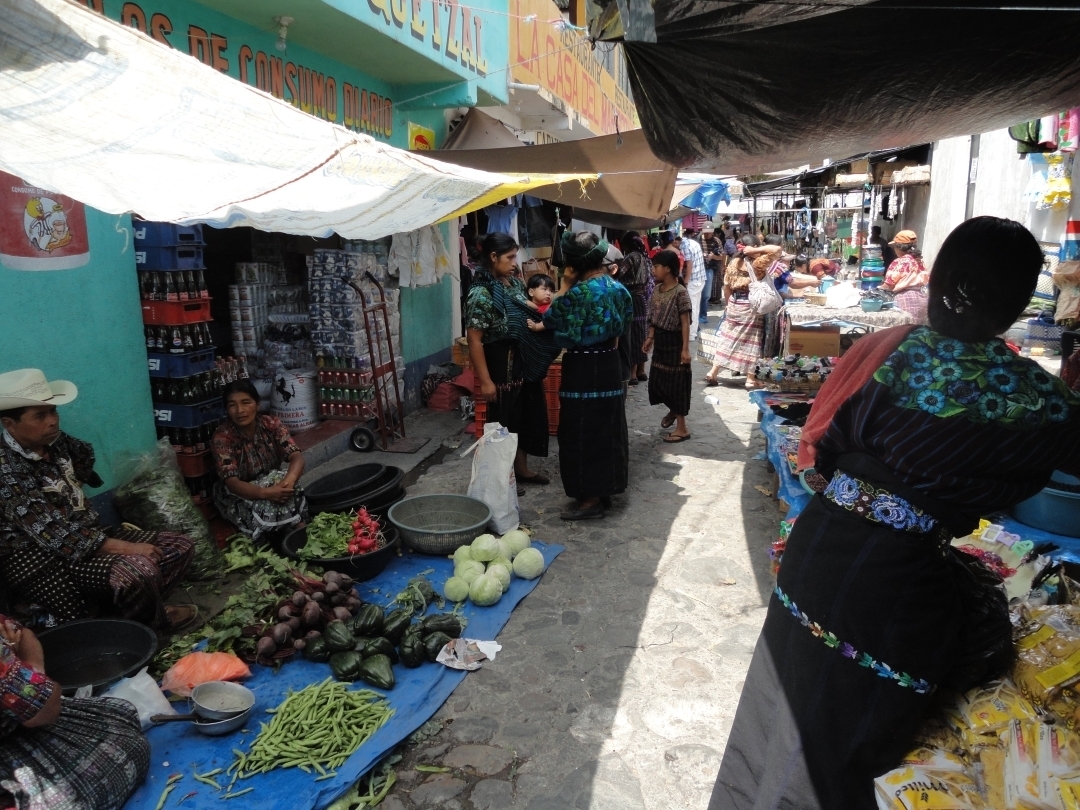6 Haggling Tips For People Too Nice To Haggle

1) Get to Know Someone
Getting to know locals is always a good idea in general. Personal connections are an important part of travel, often leading to the most memorable and unexpected travel experiences. Although looking to someone to do any actual negotiation is asking too much, many people are happy to provide helpful information. Simple questions such as, ”I’m looking for a gift for my best friend,” or, “Do you know how much I’d expect to pay for a . . . ?”, usually elicit at least a good idea of a reasonable price range. An idea of a reasonable price range is crucial. With that information, travelers can avoid cheats asking for joke prices and gain a solid basis for making an offer.
If the answer starts with, “I have a cousin who can help you . . . “, then never mind. In cases where a local wants to steer business toward a friend or relative, usually expecting a kickback, that person is not likely to advocate for the traveler’s best interests, There’s no need to be offended when that happens. In the same position, most people would probably choose helping a friend or family member over a new acquaintance.
2) Walk Away
When there’s no reliable source for information about what would be a reasonable price range, ask what an item costs then slowly walk away. Chances are, the price will drop with every step. The final offer is likely to be somewhere around the upper limit of the standard price range, an offer meant to be enticing, but which still leaves room for further negotiation. Don’t worry if a statement like, ”I might be back later,” sour a seller’s mood.
Enthusiasm isn’t always an indicator of the seller’s goodwill. Sometimes it’s a sign that the seller is expecting to strike a particularly advantageous deal. Threats that an item or special deal won’t be available later are rarely serious. Many merchants, even after issuing solemn warnings that they can’t guarantee a price later, have a remarkable ability to pick up exactly where a negotiation left off.
In markets where similar merchandise is sold by multiple vendors in close proximity, there’s nothing wrong with hearing the walkaway offer from several sellers before doing any serious bargaining. Simply indicating interest by asking a couple questions or just asking for a price before going to the next seller is an effective way to get a sense of what several different sellers are charging without committing to a counteroffer. Do not make a counteroffer without knowing what to pay. Once a counteroffer is on the table it is extremely rude to back out or renegotiate, even if a wide-eyed vendor exclaims, “Deal,” a little too eagerly.
No one likes to watch a potential customer leave, so expect sellers to do their best to discourage walking away. How much do you want to pay is one of the standard questions posed to departing customers, and it is a reasonable thing to ask. The problem is that it’s difficult to give a confident answer without knowing what price is fair. It’s not necessary to make an offer, and probably not a good idea to confess ignorance right out loud. Quietly walking away with perhaps a friendly sign of interest in coming back later is fine. High-pressure sales tactics and sly maneuvers, like inquiring into how much you’re thinking of spending under the pretext of suggesting something to fit your budget, can be basically ignored.
Whenever possible, given a choice of several vendors with similar products, avoiding the ones that start with inflated prices or employ pushy sales practices is usually the best idea. Rewarding good people with your business is the right thing to do, and sets the kind of precedent that makes life a little easier for the next traveler. Dealing with someone who demonstrates good business practices in your first transaction can also build a relationship that leads to easy bargains in the future. Personal interactions matter a great deal in many cultures, making transactions smoother with each exchange.

3) Make Them Like You
Imagine having arbitrary discretion over the prices at some place of business: Who would you give the best deals to? Probably not an aggressive person trying to push you into taking a low offer or someone who is obliviously disrespectful. Personally, I’d give good deals to someone who negotiates for a reasonable price for the local market in a calmly assertive manner, and my best deals to customers that I took a special liking to. Not surprisingly, that same tendency appears to be practiced widely all over the world, especially in cultures that strongly value personal relationships and where business mixes freely with social connections.
For one-time interactions, showing an interest in local culture is often appreciated. The less well traveled the location is, the more that respect makes a difference. Nobody’s impressed by another tourist shouting ”bonjour” to everyone in Paris, but a few simple phrases in an uncommon language or sincere and knowledgeable questions about local customs or history might catch someone’s attention. Many years ago, I memorized most of the Polish phrases in my guidebook before traveling to Krakow, and I can still remember the look of shock on the face of a street vendor after I asked a couple short questions in what I’m sure was poorly executed Polish. The man expressed appreciation that I’d taken time to learn a little of his language, and he ended up undercharging me for the postcards I was buying.
In situations in which a traveler is staying in one place for an extended period of time or passes by a certain vendor frequently, maybe a refreshment seller or fruit vendor on the way to the closest metro stop from a hotel, building rapport pays off. Make small talk with each sale and acknowledge the person with eye contact and a smile or quick wave in passing even when not buying anything. Within a few days, even fixed prices can magically drop and the same fruit vendor who once tried to unload spoiled produce on a potential mark may begin giving discounts to a new friend.
4) Buy Several Items at the Same Time
A single negotiation for several items can bring down the cost per item, and asking for an additional item thrown into a deal sometimes works when the price isn’t going any lower. The seller has more to lose by turning down a small profit per item on several items than a small profit on just one purchase. Asking for a small throw-in is useful for breaking a deadlock if the price on a large item is a little higher than it could be, but low enough that it isn’t worth starting over someplace else.
5) Always Get Your Change Back
So you’re in a new environment, disoriented and jet-lagged, and a friendly vendor sends you off with smiles and well wishes for your travels, forgetting all about about the change you have coming. Ask for it. Maybe you suspect you handed over the wrong coins or don’t mind giving an honest mistake a pass. Ask for your change back. Let this blatant rip-off pass and you might as well put on a t-shirt that says “Sucker” in bold letters while you’re at it.
6) Be happy
If you feel good about what you bought for a price you could afford, it was a good deal. Worrying after making a purchase about the better bargain that might have been will only cast a shadow over a great trip. More often than not the free memories that come with travel souvenirs make them worth much more than the price paid.
Unless you enjoy haggling, routinely fighting over the last few cents of difference between your offer and the asking price gets tiring. Sometimes it’s better to let it go. In most circumstances, the seller needs the money more than the traveler, and if you’ve paid a little (or a lot) more than you could have, chalk it up to charity and experience. Getting taken for a ride could almost be considered a kind of traveler’s initiation.
On a particularly hot, humid day in Delhi, India, I was once the entertainment for a cluster of small snack and water vendors outside Palika Bazaar. Holding out correct change for a bottle of water, I was asked by an ingratiating teenager to pay an extra nickel’s worth to cover tax, as in idiot tax. Seeing the bottles sitting in a pool of melting ice, I reached in my pocket for a couple more rupees and told him, Ek thanda pani dedo — give me a cold one. The triumphant teenager yelled out to his friends and pointed at me as I walked away. The whole group had a good laugh. And that cold water tasted great.
By Evan Denno

ABOUT THE AUTHOR
 Evan Denno co-authored his wife’s memoir about her experiences as a Tibetan refugee, A Hundred Thousand White Stones, and has published work with Punchnel’s. He lives in Bath, Maine, with his wife and two daughters. The website for his book, 100KWhitestones.wordpress.com, is awesome.
Evan Denno co-authored his wife’s memoir about her experiences as a Tibetan refugee, A Hundred Thousand White Stones, and has published work with Punchnel’s. He lives in Bath, Maine, with his wife and two daughters. The website for his book, 100KWhitestones.wordpress.com, is awesome.
